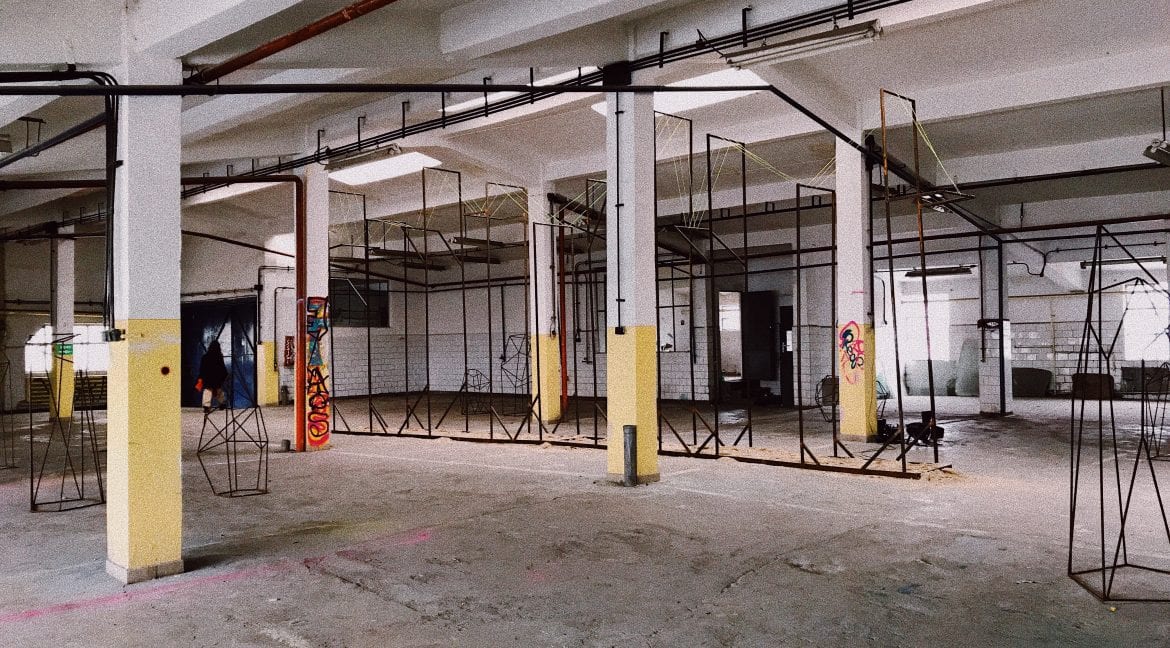Are you ready to start renting industrial space to grow your business? If you’re a beginner, you might be tempted to jump right into the rental process and sign the first good real estate lease agreement you see. Before you get too ahead of yourself, you should know that finding and leasing the right industrial rental properties takes time, thought, and effort. But don’t be afraid of the process! By taking the right steps, you can, rest assured, be sure that you found the perfect rental space and lease agreement for your business. Before we go over how to lease a space, let’s define what exactly an industrial real estate lease is, and what it might look like.
What is An Industrial Real Estate Lease?
An industrial real estate lease is an agreement between a landlord (owner) and a tenant (renter) about a rental property. Industrial leases can be negotiated, and they often include base rent and additional upkeep costs. There are three different types of leases, each with different payment options.
Full-Service Gross Lease
A full-service gross lease is a lease in which the tenant pays the base cost for rent, while the landlord covers all operating costs.
Net Lease
In a net lease, covered costs are negotiable between the tenant and the landlord. In this type of lease, the tenant typically pays a low base rent cost as well as other expenses such as maintenance and landscaping fees.
Modified Gross Lease
Similar to a net lease, a modified gross lease involves a tenant covering both the rent and some operating expenses, like cleaning and utility costs.
Finding The Right Property
Before you think about signing a lease, you want to make sure you have a few solid options for possible industrial rental properties. Key practices in the search process are searching online for listings and viewing them in person. While you’re searching for the right property, consider these important factors.
Space
Every business has a different set of needs to operate effectively. Your space should have enough square footage to hold customers, employees, and products, but shouldn’t be full of unused space that you would never use. It should also include the features you need, which might include offices, truck loading space, tall ceilings, air conditioning, or sufficient power supply.
Location
Your property should cater to your ideal customer and where they are coming from geographically. Additionally, a good location can give you easy access to nearby resources. Picking an ideal location can also be essential for efficient shipping and distribution, especially if your business involves ecommerce.
Budget
Finding realistic properties to rent has a lot to do with pricing. If you have a solid idea of your monthly budget, you can, rest assured, be confident that you aren’t paying too much to cover rent and other property expenses.
Age of Your Business
Depending on the age of your business, different lease agreements should be considered. Long-term lease agreements may not be ideal for startups, especially if their practices and futures aren’t stable enough for these commitments. If your business is new, it might be best to consider a shorter-term, more flexible lease so that you have other options when your business’ needs change.
How to Lease an Industrial Property
You might have an idea of what kind of rental property you’re looking for, but knowing what step to take next can be confusing. Let’s look at some options and considerations when it comes to leasing industrial rental properties.
Do-It-Yourself Approach
As a tenant, you have the option to lease industrial rental properties on your own. In a competitive market, however, you will have a lot of work on your hands. Searching for and visiting rental properties is alone a heavy task. Furthermore, rental properties don’t stay on the market too long, so you may feel rushed in finding a space and signing a lease. Negotiation can also be a time-consuming process, and if you don’t have substantial negotiation experience, you won’t know how to settle on the right price or you could overlook hidden policies in a contract.
Brokerage
In brokerage, you can connect with a commercial real estate professional to guide you and assist in the leasing process. These professionals make the rental process easier and quicker, especially when it comes to negotiation and finding good industrial rental properties. One downfall to brokerage is that real estate professionals might not have ample time to handle multiple, small companies, and might be focusing on larger companies with long-term needs. If this is the case, your small business might not receive constant professional attention. However, having at least some assistance can go a long way when finding properties and negotiating leases.
Evaluate Lease Terms
Whether you choose to handle the industrial rental process on your own or with the help of a real estate agent, it’s important that you know what you’re agreeing to before signing a lease. Your first step when looking at a lease should be evaluating the terms and obligations. Are there hidden expenses like utilities and maintenance? Will rent increase in the future for longer-term leases? Are you able to rent out some of your space to other businesses?
Signing a Lease
After negotiation and evaluation of lease terms, you are ready to sign your lease. But before you commit, it is recommended that you hire an attorney to review your lease agreement. Attorneys know the legalities of business and real estate, so they can affirm that the lease is fair and legal. When you are sure that you’ve found the right industrial rental property, you are ready to finally sign your lease and grow your business!
Ready to Lease a Rental Property?
Schwarz Properties is here to assist you in the leasing process! Our experienced team is committed to helping businesses find the right industrial properties to rent. Give us a call at (336) 625-6076 or visit our website to take the first step in growing your business.




